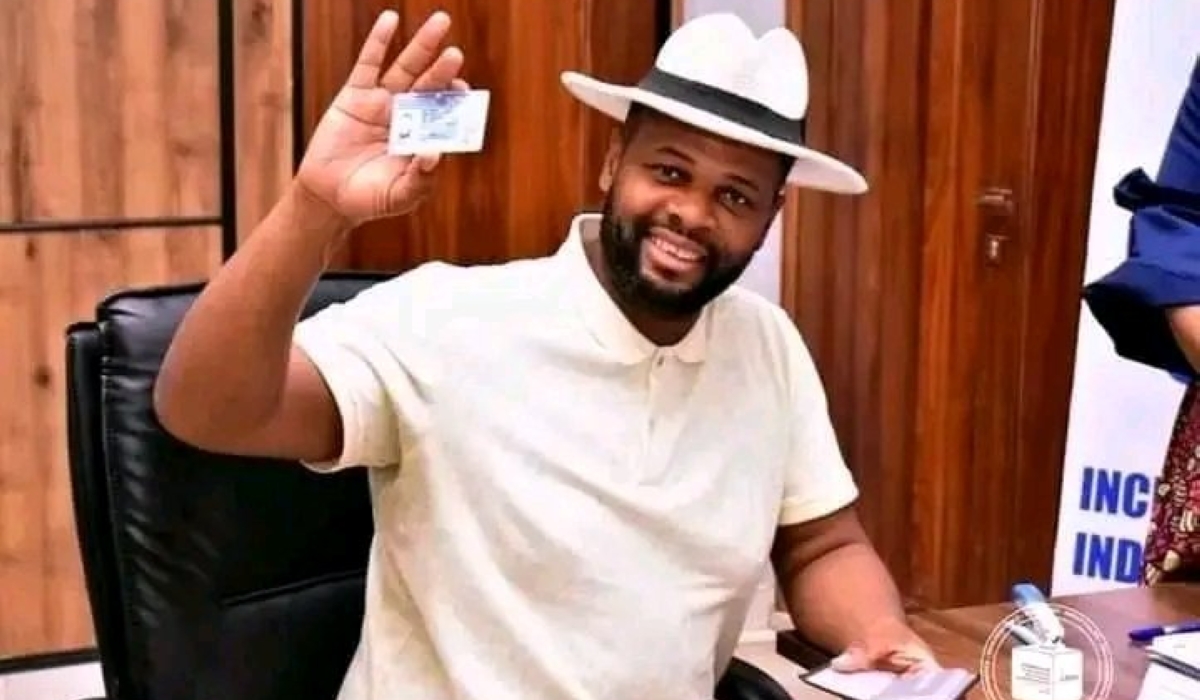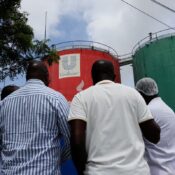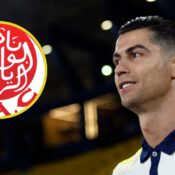
DR Congo crisis: Rex Kazadi, a former presidential contender, joins AFC/M23, according to sources
The Alliance Fleuve Congo (AFC/M23) rebellion has reportedly welcomed Rex Kazadi as a contender for the December 2023 presidential election in the Democratic Republic of the Congo. Kazadi registered from Europe on Sunday, March 30. The whole DR Congo diaspora was urged to join the effort to liberate the country by AFC/M23 coordinator Corneille Nangaa on Sunday.
“It is with joy that I sign my membership in the Alliance Fleuve Congo today,” Kazadi says in a brief video that was shared on social media during a press conference.
“I genuinely appreciate you involving me in this initiative. Being a part of your team is an honor. I am prepared to devote myself entirely to our shared ideals.
One of Kazadi’s many promises made at the beginning of his 2023 campaign in Kinshasa was to assist in bringing peace back to the country’s east when he was elected.
Southern African Development Community (SADC) forces commanded by South Africa were permitted to depart eastern Democratic Republic of the Congo on Friday, accompanied by their weapons and equipment, thanks to the Alliance Fleuve Congo. Once the rebels took control of Goma, the capital of DR Congo’s North Kivu Province, in January, the Congolese army coalition included the southern African men that surrendered.
With the addition of numerous additional armed groups and opposition leaders from the Congo, Alliance Fleuve Congo has experienced an increase in membership in recent months. Twirwaneho, a group that uses armed self-defense to defend the Banyamulenge community in South Kivu Province, declared in February that it has allied with AFC/M23 in order to combat the Congolese government. Col. Michel Rukunda, the head of Twirwaneho, was killed in a drone assault by Congolese forces, and this occurred soon after his death.
Alliance Fleuve Congo, led by Nangaa, the former head of the Congolese national election commission, is working for governance that protects all Congolese citizens, upholds fundamental human rights, and tackles the underlying causes of conflict. Along with other ills that are pervasive in DR Congo, the revolt has pledged to eradicate corruption, nepotism, tribalism, and the genocide ideology propagated by the FDLR, a Rwandan genocidal group backed by DR Congo. A terrorist group that threatens the existence of the Congolese Tutsi population, the FDLR was established in the middle of the 2000s by former leaders of the 1994 Rwandan Genocide against the Tutsi and is supported by the Democratic Republic of the Congo.
The genocidal militia joined Kinshasa’s friends with an intention to attack Rwanda after thoroughly assimilating into the Congolese army alliance. The militia poses the greatest threat to Rwanda and the region as a whole because of its murderous philosophy.
In contrast, he continued, “we welcome everyone based on their area of expertise, without distinction. As a respectable state, a nation with a united populace, and a dignified nation, this will enable our nation to meet all the challenges of the new period. Our revolution keeps moving forward inexorably toward more freedom, justice, and prosperity for all Congolese living together.
“Get yourself more involved in supporting the Congolese revolutionary army so that our values can triumph.” I hope the Democratic Republic of the Congo lives on. Let the Alliance Fleuve Congo live on. To the Congolese diaspora, long live. May you be blessed and protected by God.
Significant losses have been incurred by the Congolese military in the conflict with AFC/M23 insurgents since January. The Congolese army alliance included Burundian military troops, South African-led SADC forces, Wazalendo ethnic militias, the FDLR, hundreds of European mercenaries, and UN soldiers.
The Congolese armed forces (FARDC) in coalition had been violating a truce for a long time, which led to intense fighting. On January 27, the rebels took Goma and proceeded to secure and stabilize the situation, restoring order.
After giving up, hundreds of Congolese soldiers joined the rebels.
According to accusations of brutality, theft, and atrocities spread by the Congolese army coalition, the security situation in South Kivu worsened. The rebels responded once more, seizing the important airfield of Kavumu before advancing south to seize the regional capital, Bukavu, on February 15.
They captured the village of Walikale, which is located roughly 130 kilometers northwest of Goma, on March 19. During their swift progress this year, the rebels had advanced as far west as they had.
For many years, FDLR has had a stronghold in Walikale.
In 2021, the M23 rebels and the Congolese army alliance renewed their fighting.
Numerous shortcomings of the Congolese government, such as Kinshasa’s inability to carry out a peace deal made on March 23, 2009, led to the creation of the M23 on May 6, 2012.
A previous political-military organization called the Congrès national pour la défense du people (CNDP), which had been established approximately three years prior, put an end to the uprising in January 2009 after Kinshasa pledged to incorporate its fighters into the national army, among other things.
A ceremony welcoming the first group of rebel fighters into the national army was held at Rumangabo military camp, approximately 45 kilometers north of Goma, the capital of North Kivu Province. Top government officials, including the then-defense minister Charles Mwando Simba, who died in Belgium in December 2016, attended the event. Following the inclusion of their fighters in the national army, CNDP officials said a few days later that the party had “de facto transformed into a political party” that was officially recognized by the government.
However, after declaring an end to resistance and forming a political party, everything was completely destroyed eleven months later. At the moment, Désiré Kamanzi, the disgruntled leader of the former rebel group that had evolved into a political party, resigned.
“The main causes are, most significantly, the slowness in putting into effect the agreements we have signed with the government since January,” Kamanzi declared, adding that “we asked that a regular national monitoring committee be established, but this was in vain.”
Since December 2023, M23 has been a part of Alliance Fleuve Congo, a broader and expanding rebel coalition.
Eastern DR Congo’s security situation deteriorated due to a large Congolese army coalition that was supported by Western nations like Belgium and included Burundian soldiers and Rwandan genocidal militia.
All Categories
Recent Posts
Tags
+13162306000
zoneyetu@yahoo.com


